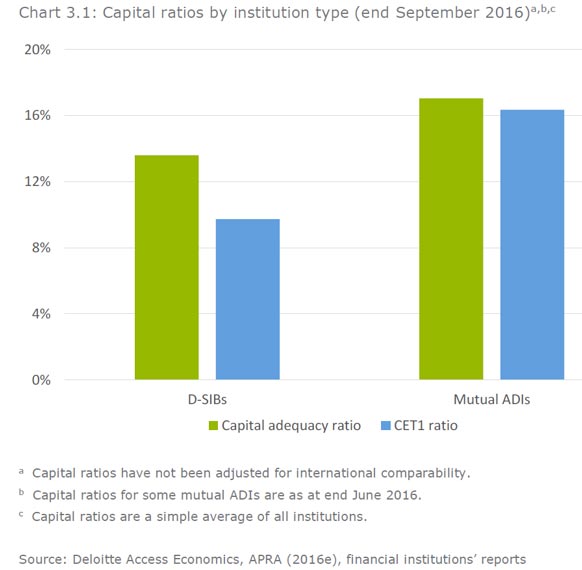Christmas is a time to forgive and forget and the Australian Securities and Investments Commission (ASIC) sure knows how to distribute good cheer at Yuletide, especially to old friends such as the big four banks.
On (almost) the night before Christmas, ASIC popped down the chimney and gave the banks a great big present. Buried among the usual news about banning car dealers and liquidators, the regulator announced that it had accepted an “enforceable undertaking” from the Commonwealth Bank of Australia (CBA) and the National Australia Bank (NAB) in relation to the banks’ wholesale spot foreign exchange (FX) businesses.
The conduct revealed by ASIC would be criminal if other firms tried it and will be criminal in future. Traders at the two banks, had on several occasions between 2008 and 2013: exchanged information about their positions with traders in other banks; shared confidential information about clients’ orders; and, in some cases triggered “stop loss” orders to the financial detriment of clients.
The traders had used inside information to enrich the banks and themselves.
To date, overseas regulators have hit major banks with fines totalling more than US$10 billion for what has become known as the “forex scandal”. For example, the Financial Conduct Authority, the UK equivalent of ASIC, fined JPMorgan some A$379 million for the company’s part in manipulating the daily FX Spot Rate benchmark. JPMorgan traders had been found to have committed the same underhand behaviour that has been discovered in NAB and CBA.
So, what were the fines imposed by ASIC on CBA and NAB – wait for it – A$2.5 million each!
Now this is a really big Christmas pressie for the banks. The story that Santa won’t come if you are a bad child, is obviously rubbish.
The banks have also promised to be good from now on and ASIC has required that they employ a nanny (an independent consultant) and that they put in place changes to their “existing systems, controls, monitoring and supervision of employees”. What were they doing before?
And as a very bad Christmas cracker joke, these fines have been dressed up as a “community benefit” payment to – wait for it – advance “financial literacy education related to the aged care sector”. In other words, we will sell you a dodgy reverse mortgage and then tell you why you shouldn’t have bought it from us in the first place.
How did such a Christmas pantomime come about?
If regulation were a beach cricket match, the banks have just asked ASIC to “follow on” and then scuttled them out for a handful of runs.
ASIC is on the back foot, as it was dealt a big blow by the Federal court recently when its strategy for prosecuting the banks over the bank bill swap rate manipulation was delayed yet again. The banks know that by delaying they are rapidly chewing up ASIC’s (the taxpayers’) money to prosecute of A$80 million.
ASIC has had a bad year. Earlier in the year, it was found by the government to be a dysfunctional, over-worked and under-resourced organisation. Kelly O’Dwyer, the Minster responsible, leapt into action, and renewed Chairman Greg Medcraft’s contract for only 18 months rather than the usual three years.
It looks like 2017 is going to be much worse for the regulator.
As the bankers take off for their Christmas break, they have the hard job of deciding where to spend their record bonuses. For example, Santa has been very good to Ian Narev, CEO of Commbank, who has pocketed a 50% pay rise, despite a string of scandals, involving not only bankers manipulating the FX market, but also the CommInsure scandal.
What exactly does a bank CEO have to do to be left off the Christmas card list these days?
Ask the members of the Parliamentary Committee who had the CEOs of the four major banks over this year for a mild roasting. The result was, as the ex-CEO of ANZ said, “a bit of theatre” – a sort of Nutcracker with the nuts but without the cracker.
Each of the four CEOs was asked about systemic issues and all of them batted back the questions elegantly. Mr Narev, pirouetted around the question noting that he had “lost count of the number of times I have emphasised throughout the organisation the importance of escalation”. The committee members, bedazzled by the consulting speak, did not follow up.
As it turns out, Mr Narev must have been negotiating with ASIC over just the sort of industry-wide misconduct that the members were asking about, but it must have slipped his mind. Likewise, Andrew Thorburn, CEO of NAB, was asked about systemic issues but deflected the questions – nothing to see here – even though, at the time, he too must have been negotiating with ASIC on manipulating the FX benchmark.
Next time, if there is a next time, the Committee must follow up and ask the right questions of the right people.
So, the banks are the undoubted winners in 2016, lots of scandals, laughable fines, no Royal Commission, couldn’t get any better. And they certainly plan to have a Happy New Year.
Honorary Fellow, Macquarie University Applied Finance Centre, Macquarie University










